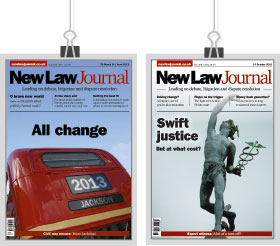
Mike Williams suggests an alternative to judicial involvement in procedural changes
One of the most unchanging principles of life is that people always live in a time of change-and frequently they don’t like it. It is, however, beyond argument that currently the pace of change in civil litigation is even more vigorous than normal, and we have three senior law lords, namely the Master of the Rolls Lord Etherton, Briggs LJ and Jackson LJ all looking simultaneously at different areas of practice: representation; IT; and costs respectively.
It is beyond dispute that their goal of swifter and cheaper litigation is praiseworthy. However, I would suggest that, firstly, there are alternative solutions to the costs conundrum: solutions that would make more sense to practising solicitors who handle the vast proportion of the dispute resolution process. Secondly, we need to consider the possible unintended consequences that might flow from what the uncharitable might suggest are the judiciary’s attempts to achieve quick wins.
Jackson LJ has been working on his plan to contain





.tmb-mov69x69.jpg?sfvrsn=961ae4db_1)
95ca96e3d47f4eff8d147c4f0df17c77.tmb-mov69x69.png?sfvrsn=3db5d86b_1)

